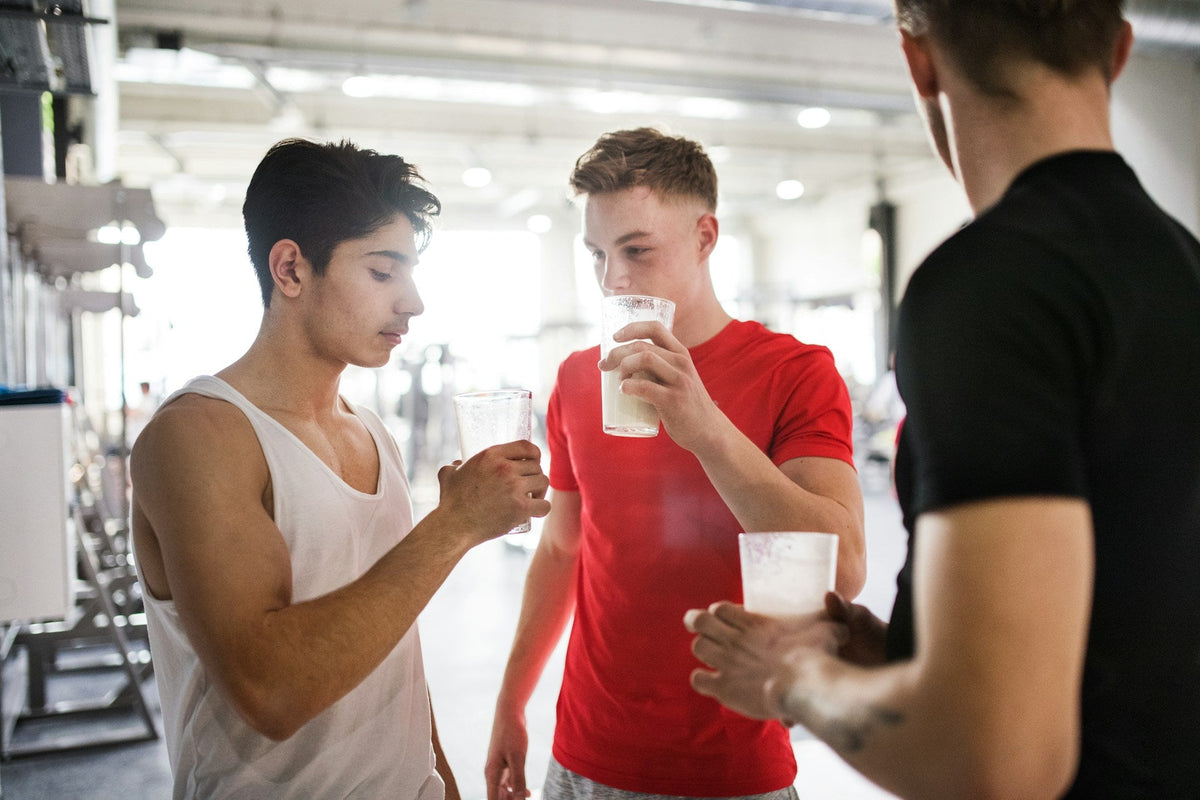
Did you know, the body is actually constantly breaking down and building muscle protein? It’s a natural occurrence that happens within all healthy adults. Physical activity increases muscle protein breakdown and muscle protein synthesis. Intense physical activity can lead to micro-damage or mini tears in the muscle fibers. This is a transient, normal response to vigorous exercise. Muscle protein breakdown is a normal response to exercise. It’s actually pretty neat how our muscles communicate with the rest of our body.
Building muscle
Consuming protein alone doesn’t equal more muscle or increased size or strength. Muscle is built through dual efforts between proper nutrition and regular resistance training. Together, over time, resistance exercise and consuming sufficient amounts of high quality, complete protein may help to support muscle building. It’s not an overnight phenomenon. Building muscle can take time, depending on the individuals training regimen, nutrition, rest, and recovery schedule.
Muscle recovery
Keep in mind, muscle protein breakdown occurs in response to exercise. This is normal. Micro-tears in muscle may occur as a normal response to very intense or prolonged exercise. Micro-tears are an important stimulus for muscle growth. Adequate recovery time and proper nutrition are important for muscle recovery. Therefore, it’s important to allow muscles adequate time to recover. Most often people tend to think muscle recovery only happens after an activity, however muscle recovery is a 24 hour process that can take up to several days. Recovery differs by person and by activity. The amount of time needed for muscle to recover depends on your body, the type of physical activity, duration and intensity.
Protein and muscle recovery
Protein helps to support muscle recovery. All proteins are made up of amino acids. Complete proteins naturally contain all the essential amino acids (amino acids our bodies cannot make and must be consumed) and varying amounts of branched-chain amino acids (BCAAs): leucine, isoleucine and valine. Leucine in particular helps to support muscle protein synthesis when taken over time with regular resistance training. Choose complete, high-proteins to help support muscle protein synthesis. Some examples include: dairy products (milk, yogurt, cheese, cottage cheese), eggs, turkey, beef, chicken, fish, and soy-products.
5 QUICK TIPS TO MAXIMISE MUSCLE RECOVERY WITH PROTEIN
-
Keep track of your protein intake to ensure you’re meeting your daily needs
-
Look for fuelling opportunities throughout the day – including post-workout
-
Aim for 20-40 grams protein throughout the day among meals and snacks
-
Choose complete high-quality proteins to help support muscle protein synthesis such as GOLD STANDARD 100% Isolate
-
Add a variety of plant-based protein food sources from nuts, seeds, cereals, grains, legumes and soy products such as tofu, tempeh, edamame, soy milk and soy yogurt
Disclaimer: The above article is merely a guide and is in no way a recommendation or a treatment protocol for any health conditions or diseases. You should always consult with a qualified health care provider before changing your supplement, training or nutritional strategy. Supplementation should not be attempted by pregnant or breastfeeding women, anyone on prescription medication or children under the age of 15 unless advised by your qualified health care provider. The above article has been taken from www.optimumnutrition.com




